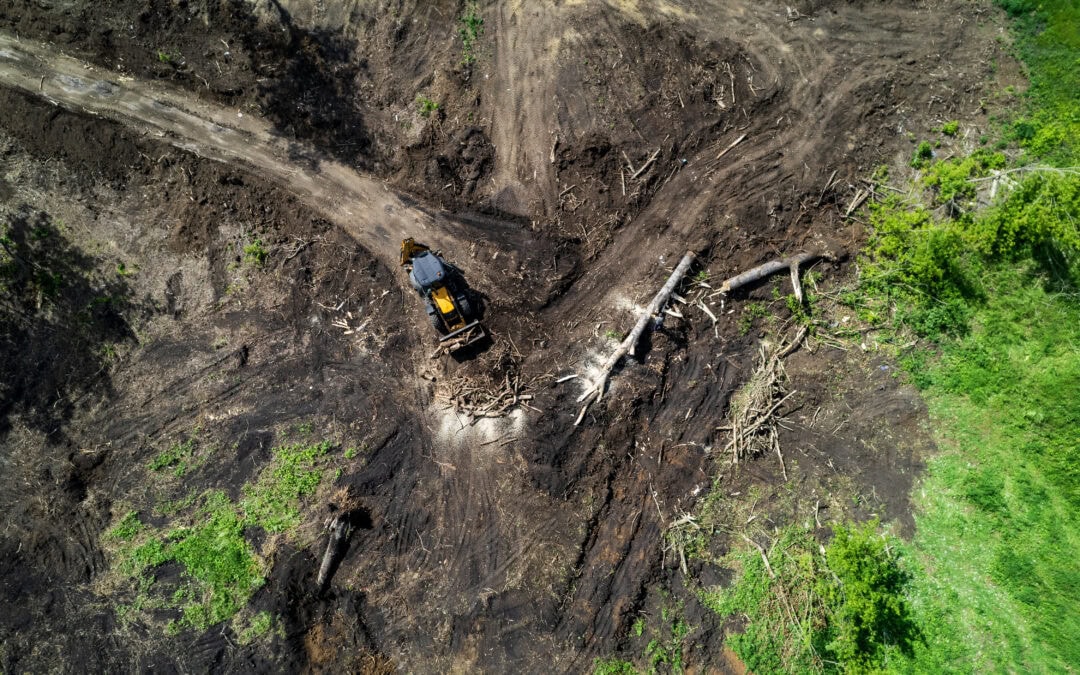Land pollution, often resulting from human activities, is the degradation or contamination of the earth’s surface. This contamination can come from different sources such as industrial residue, toxic chemical substances, and more. Activities like improper waste disposal, harmful farming practices, or industrial accidents can contribute to land pollution.
How Pollution Affects the Environment
Pollution has wide-reaching effects on the environment, but its impact on land surfaces can often be extreme. The chemicals from pollutants change the physical and biological characteristics of the soil, reducing its quality and fertility. This can negatively impact agriculture by reducing crop yield and quality. Land pollution can also create litter and hazardous environments, reducing the commercial and recreational value of an area, as well as its aesthetic value. In severe cases, land pollution can lead to soil erosion, jeopardizing the stability of buildings and natural landscapes.
Naturally, the impact of this pollution does not always end with the land itself. Land pollution can also lead to the destruction of habitats and displacement or even extinction of certain species. Additionally, when rainwater moves through polluted soil, it can lead to water pollution, affecting aquatic life and our water sources.
Landowners vs. Land Pollution
Land pollution directly impacts landowners and how land is managed. Landowners may unknowingly acquire polluted land, often due to lack of information or comprehensive environmental assessments prior to purchasing or inheriting the property. No matter how they acquired the property, the new landowner becomes responsible for its condition, including any existing pollution.
Excessive waste or toxic chemicals in the soil can limit the land’s use, whether it’s for agriculture, construction, or recreation. Depending on the nature and extent of the pollution, those at fault could potentially face legal consequences. If pollution on the property adversely affects neighboring properties or public resources, it could result in legal disputes or penalties.
Land pollution can also decrease the overall value of the property. This is especially true if pollution becomes public knowledge or if the land is deemed unfit for specific uses due to contamination. Buyers may be hesitant to invest in a property known to be polluted. Landowners might find it challenging to sell the land, especially at value, if it has been contaminated.
As such, landowners often have to make difficult decisions regarding the use of polluted lands, including costly cleanup operations or potentially leaving the land unused.
Impacts on Forest Management and Timber Harvesting
Land pollution can also significantly impact the forest management and timber harvesting industries. Pollutants can harm trees, reducing their growth and health, and compromising the types of trees that can successfully grow within the forest. This can lead to a decrease in timber quality and quantity, affecting the productivity of timber harvesting operations, and thus, the commercial value of the property. With significant pollution, regulatory agencies may place restrictions on land use, which could include delays or restrictions on timber harvesting and further impact profitability.
Land pollution can also alter the soil composition and affect the balance of the forest ecosystem. This can lead to invasive species taking over, which can be challenging to manage and further devalue the timber resources.
Polluted forests may require extensive rehabilitation, which can be both costly and time-consuming. Timber managers might need to invest more in restoring degraded land, isolating contaminated areas, and implementing pollution control measures.
Legal Assistance for Land Pollution Cases
A Legacy litigation attorney can play a crucial role in land pollution cases. When pollution results from the actions of corporations or individuals, legal action may be necessary. Legacy litigation refers to legal disputes over pollution that has occurred in the past but continues to impact the land. Attorneys with experience in this area can help victims of pollution seek compensation for damages, and can hold responsible parties accountable.
How Legacy Litigation Can Help Landowners and Timber Managers
Legacy litigation serves as a powerful tool for landowners and timber managers affected by land pollution. This form of legal action can lead to compensation, which can assist in funding land cleanup and recovery efforts. Additionally, through Legacy litigation, regulations may be enforced more strictly, inhibiting further instances of pollution. As a result, landowners and timber managers can focus on improving the land’s health and productivity without bearing the burden of pollution caused by others.
Working with Us for Your Land Pollution Case
As skilled Legacy litigators with a deep understanding of environmental law, our team will guide you through the complexities of your case and fight diligently for the compensation you deserve. For decades, we’ve represented landowners in cases for environmental damages to property caused by historic oil and gas operations. With Talbot, Carmouche & Marcello, you can be assured that your case is being handled by a team that is committed to justice and the preservation of our natural resources.
Contact us today to schedule a free consultation and tell us more about your case.

